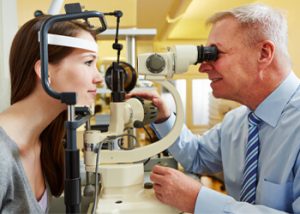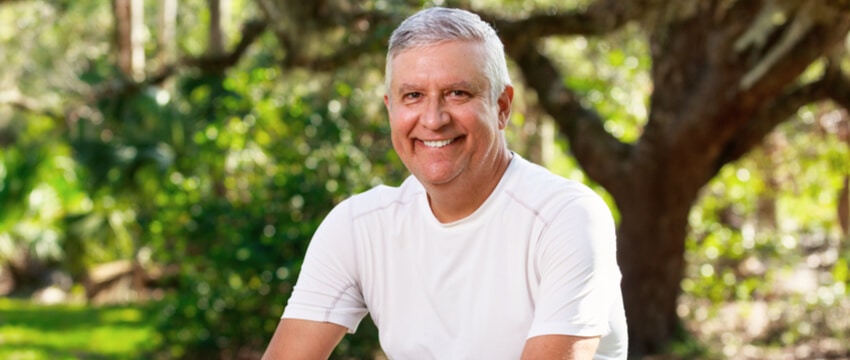How Long to Recover from Cataract Surgery? Understand What to Expect
While cataract surgery itself can take as little as 15 to 20 minutes per eye, the cataract surgery recovery period is understandably much longer. As many older Australians continue to live active, busy lifestyles, needing to take an extended timeout to heal from cataract surgery can be neither appealing nor practical. Find out how long to recover from cataract surgery and what you can do to smooth out your cataract surgery recovery process.
How Long to Recover from Cataract Surgery?
In terms of making a full cataract surgery recovery, most people complete this in 4 to 6 weeks. This covers the time it takes for the eye to heal from the procedure, and for your sight and final prescription to stabilise. However, in terms of how long to recover from cataract surgery to the point that you can return to your typical activities, fortunately, this is usually much sooner.
When it comes to being able to see well enough to move around, read a book, or watch TV, a lot of people find that their sight is clear enough even several hours after having cataract surgery. However, if this isn’t the case for you, don’t panic. Everyone’s cataract surgery recovery process, and eyes, are different. You may find it takes a week before you can read without getting unduly fatigued, or a couple of days before you feel confident walking down an unfamiliar street.
Returning to work after cataract surgery can depend largely on the activities involved in your job. Although cataract surgery is usually a safe and uneventful operation, it still carries a small risk of complications occurring during the post-operative recovery period. People who work in more sedentary roles in relatively clean environments will be able to return to work earlier than someone whose occupation exposes them to more risk of infection or injury. For example, an office worker may be able to return to work the week following cataract surgery. However, workers such as a policeman, a professional athlete in a contact sport, or a swimming pool lifeguard, will most likely be advised to put aside more time on leave for their cataract surgery recovery. Alternatively, your tasks may be temporarily modified to minimise your post-operative risk, such as focusing on administrative duties until your cataract surgeon approves you to return safely to your normal role.
A big part of independence is being able to drive. Immediately after cataract surgery, you will be advised to have someone else drive you home from the clinic. This advice to avoid driving will probably hold until you attend your first post-operative review with your cataract surgeon. This first review is often only a day or two after your operation. Even if your sight feels quite clear and you feel safe behind the wheel, it’s a good idea to wait until your surgeon has confirmed that your vision meets the local driving requirements. Another consideration is that cataract surgery is typically performed on one eye at a time. If you have moderate to higher levels of prescription, this can leave quite a significant difference between the eye that has undergone surgery and the eye that hasn’t. Differences in prescription between the eyes can lead to issues with depth perception and even cause double vision, both of which are dangerous for driving.
Optimising Your Cataract Surgery Recovery
Though every patient’s specific situation may be slightly different, there are some general guidelines to follow after your cataract operation. Following these tips can help to minimise your chances of a complication occurring while your eye is still healing.
Allow yourself to rest
Try to avoid any strenuous activities in the following week or two after your cataract surgery. Some activities such as intense cardio exercise and weightlifting are obviously strenuous, but others may be less apparent. Any heavy lifting around the house such as moving furniture, carrying children or large pets, is best avoided immediately after your operation. The same goes for carrying heavy bags, whether groceries or your handbag. If possible, you will also want to try to avoid any situations that result in you having a coughing or sneezing fit, or vomiting.
Use your prescribed eye drops as recommended
 Many cataract surgeons will prescribe up to three post-operative medicated drops. These will typically be some combination of anti-inflammatory and antibiotic medications. Often, patients will be required to use these eye drops for up to four weeks, or until the bottle is finished. Your dosing schedule may also change over the course of your cataract recovery period. It can be tempting to cease using the drops as soon as your eye feels normal, however, doing so will expose you to an increased risk of an eye infection or inflammatory episode. The best case scenario is that your eye simply takes longer to heal; the worst case scenario is that you suffer a sight-threatening eye infection.
Many cataract surgeons will prescribe up to three post-operative medicated drops. These will typically be some combination of anti-inflammatory and antibiotic medications. Often, patients will be required to use these eye drops for up to four weeks, or until the bottle is finished. Your dosing schedule may also change over the course of your cataract recovery period. It can be tempting to cease using the drops as soon as your eye feels normal, however, doing so will expose you to an increased risk of an eye infection or inflammatory episode. The best case scenario is that your eye simply takes longer to heal; the worst case scenario is that you suffer a sight-threatening eye infection.
Keep your eye clean and protected
Over the 4 to 6 weeks that it’s healing, your eye is vulnerable to infection and anything that may cause inflammation. For this reason, it’s a good idea to keep it clear of any soaps, cleansers, or lotions. Also avoid saunas, pools, and going into the water at the beach as these unsterile bodies of water can often harbour harmful pathogens. Unsurprisingly, you’ll also want to protect yourself from any dirt, dust, and other debris from entering your eye.
If your sight deteriorates during your cataract surgery recovery period, or if your eye becomes red or increasingly sore, it’s important to contact your cataract surgeon promptly.
Call us now on (03) 9070 3580 for a consultation.
Note: Any surgical or invasive procedure carries risks. Before proceeding, you should seek a second opinion from an appropriately qualified health practitioner.
References
Recovery, cataract surgery.
https://www.nhs.uk/conditions/cataract-surgery/recovery/
8 Tips to Reduce Cataract Surgery Recovery Time.
https://www.allaboutvision.com/en-au/conditions/cataract-surgery-recovery/






Leave a Reply
Want to join the discussion?Feel free to contribute!